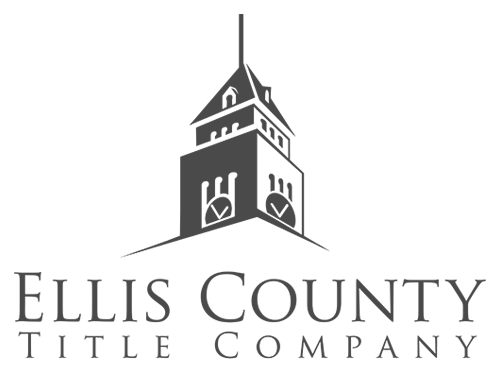Most of the people involved with the transfer of the property will attend the closing. The closing is a formal meeting typically attended by the buyer(s) and the seller(s) (and their attorneys if they have them), both real estate sales professionals, a representative of the lender, and, of course, the closer from Ellis County Title Company. The meeting takes about one hour and is usually held at the office of Ellis County Title Company. In some situations it is held at the office of an attorney representing the buyer or the seller.
The steps below explain what happens during and after the closing meeting:
1. First, the closing agent reviews the settlement statement with the buyer and the seller and answers any questions. Both the buyer and the seller sign the settlement statement.
2. The seller’s closing documents are reviewed and executed. The closing agent then requests the buyer to sign the loan documents, such as the Note, Deed of Trust and other loan related documents.
3. If everyone agrees that the papers are in order, the buyer (and possibly the seller) submits a cashier’s check to cover the closing costs and the balance of funds due (if applicable). And, funds from the lender covering the mortgage amount is submitted to the closing agent.
4. Once the transaction has funded, the keys will be given to the buyer.
5. After the meeting, Ellis County Title Company officially records the Deed and/or Deed of Trust at the county clerk’s office. This legal transfer of the property may take a few days after closing.
6. Ellis County Title Company will not disburse the funds to everyone who is owed money from the sale (including the seller, real estate professionals, and the lender) until the transaction is ready to be recorded. It is at the point of deed recording that ownership transfers.


Recent Comments